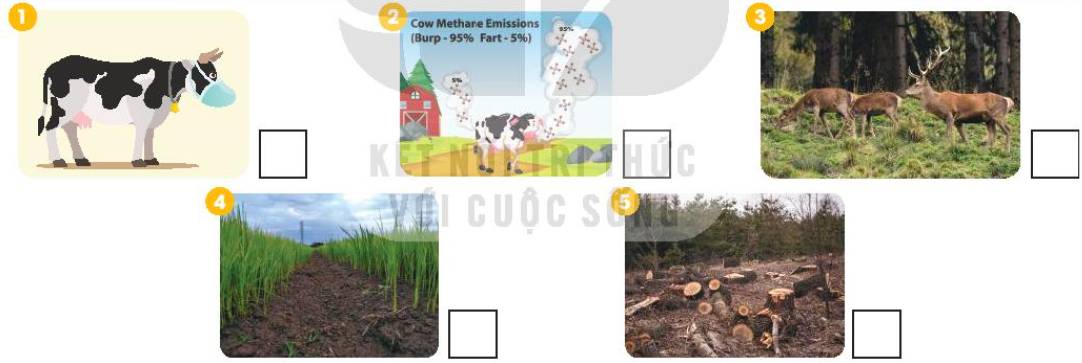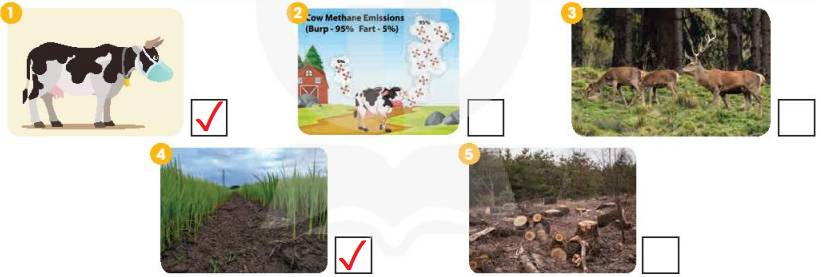Read the text and tick (✔) the pictures that show ways to reduce global warming.
REDUCING THE ENVIRONMENTAL IMPACT OF FARMING
Farming provides us with the food that we eat every day. But farming activities also have a strong warming impact on the global temperature. The good news is that experts have already started thinking about how to reduce it.
Raising farm animals like cows, goats, and sheep makes the planet hotter. There are billions of them and they release methane, a greenhouse gas that is much more dangerous than carbon dioxide. That is why scientists are developing methane-catching face masks for cows. They are intended to reduce methane emissions by up to 50 per cent per cow.
Another farming activity that heats the atmosphere is growing rice. According to research, emissions from rice farms have the same warming effect as about 600 coal plants. Flooded rice fields also make it easier for soil bacteria to produce greenhouse gases. New farming methods have allowed rice to grow well in drier fields, limit the amount of greenhouse gases, use less water, and produce better crops.
In addition, land-use increases the global temperature. Plants and trees use CO2 to grow and store large amounts of carbon underground. Cutting down or burning forests to create farm fields and land for feeding animals releases tonnes of carbon dioxide and other greenhouse gases into the atmosphere every year. Luckily, many countries and world leaders have agreed to protect the forests and end deforestation.
In short, there are some positive signs that farmers can meet the environmental challenges. However, although the impact of farming on the global temperature has been reduced, there is still much to do.







